“Self-consciously awkward and bloody-minded, the noise made by a band trying so hard to make a 'difficult' album that they felt it beneath them to write any songs". Alexis Petridis in The Guardian.
"Because it was decided that Radiohead were Important and Significant last time around, no one can accept the album as the crackpot art project it so obviously is." The Rolling Stone.
Things had been going well for Radiohead. Following The Bends (1995) and OK Computer (1997), they were riding the crest of wave, or at least, it seemed that way from the outside. On the inside though, things were significantly less rosy.
“When OK Computer finished, I was a complete mess," said Thom Yorke. I mean, really, really ill... Basically becoming unhinged, in the best sense of the word. Completely unhinged."
So from such turmoil arose their next album in 2000, Kid A: an attempt, as Yorke put it, "to get sounds that I wanted out of my head and onto tape as much as we could."
As some of the reviews testify, it didn’t go down very well. At least, not initially. After a while, it came to be understood and acknowledged as a groundbreaking classic. Almost a decade later, The Guardian placed it number two in an albums of the decade list.
Another band emerging from a very dark place with something golden was The Cure.
“During Pornography, (1982) the band was falling apart, because of the drinking and drugs,” said Robert Smith. “I was pretty seriously strung out a lot of the time, so I’m not sure if my recollection is right.”
The band had been constantly touring for around 200 days a year and things were taking their toll. Smith himself was in a very dark place. Recording the album was difficult. Copious amounts of acid were consumed and at one point, Smith found himself recording in a grim and dirty toilet room in order to capture the prevailing mood.
Like Kid A, it didn’t initially review well. But perceptions changed and the band stuck to what they do and came out the other side, with the album eventually hailed as a masterstroke and celebrated as being enormously influential.
A week ago, Forest were in a dark place. Although they got out of Bournemouth/Boscombe, a dark mood hung over them. Or, to put it more accurately, a dark mood hung over some supporters, while some observers pointed and laughed. Fair enough.
A steely determination was evident against Brighton from the off. They weren’t here to mess around, and they focussed solely on doing what they do best: crowding the space around the edge of their own penalty area in order to win the ball and then running – running really fast and running really purposefully – towards the opposition goal, frightening the bejesus out of them and their supporters.
At 1-0 up, it felt like we would need another. At 2-0 up, it still felt like we would need one more, just to be safe. At 3-0 up, it felt like the Southampton game all over again, so another would be really nice. At 4-0 up, well … the game was won, but that wasn’t important now - scoring more goals was. At 5-0, six would be nice – just because an even number seems nicer. At 6-0, seven would be nice – because an odd number seems more emphatic, more edgy. At 7-0, finally the players relaxed and that seething sense of self-flagellation that fuelled the players’ performance finally dissipated.
While we all had a Chris Wood hat-trick and a Lewis Dunk own goal on our bingo cards, a Morgan Gibbs-White bullet header, a Jota Silva strike and a Neco Williams goal were more surprising, but all the more welcome, as was a hat-trick of assists from Anthony Elanga, who has been in sensational form recently. As for Gibbs-White, a truly magnificent footballer.
And all this without the injured Callum Hudson-Odoi or Ryan Yates. Players of the quality of Alex Moreno are currently left scratching their chins and accepting that nailing a place in this team is tricker than a trip-hop rapper from Bristol who released the acclaimed album Maxinquaye in 1995.
In truth, Forest were far from the dark place that Thom Yorke or Robert Smith were. Talk of bubbles bursting was always, if understandable, wide of the mark. Even if shipping five goals was surprising and disconcerting, especially on the back of the second half against Southampton, losing away from home happens from time to time, as we all well know.
What happens now is discombobulating, but in a really good way. It is possible that fifth may be good enough for a Champions League place. Failing that, Forest may have to drop as low as ninth to miss out on a European place. Naturally, this is entirely possible, but with such a resounding and determined performance as today, looking less likely.
This is no longer a crackpot art project.
This is no longer a team playing in a way that they feel it beneath them to score any goals.
This is a team playing all the notes and all the hits in the right order.
One of my books, ‘The History Boys: Thirty Iconic Forest Goals’, has been reprinted in paperback, with a lovely review quote on the front cover. Click here if you fancy buying a copy.
I have almost completed the 92. Here are some observations from visiting lots of football grounds over the years.
If you don’t know me, I am the author of ‘Reds and Rams: The History of the East Midlands Derby’ and ‘The History Boys: Thirty Iconic Forest Goals’ (both available in the Forest club shop). I have written pieces for Mundial magazine, Football Weekends magazine, edited two award-nominated fanzines and was a columnist in the Nottingham Forest programme for eight years.
If you do know me, I’m truly sorry.
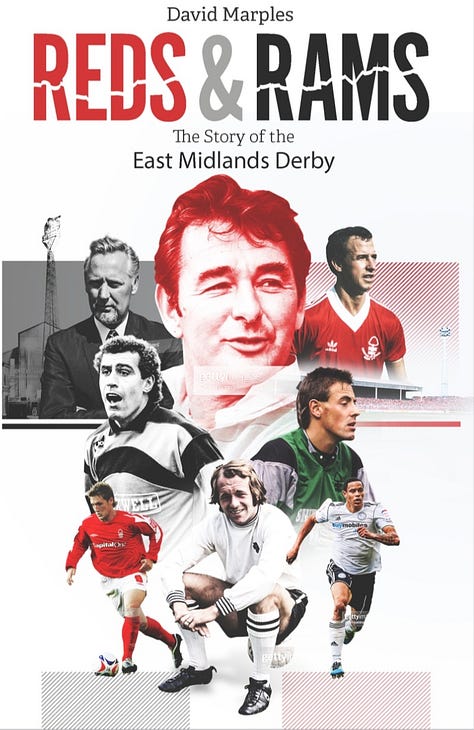
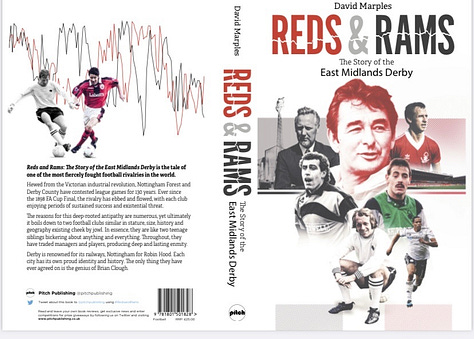
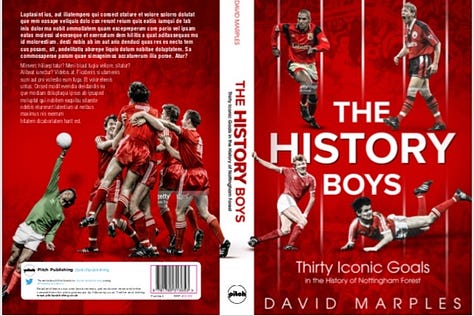


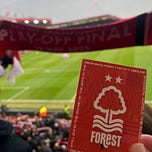


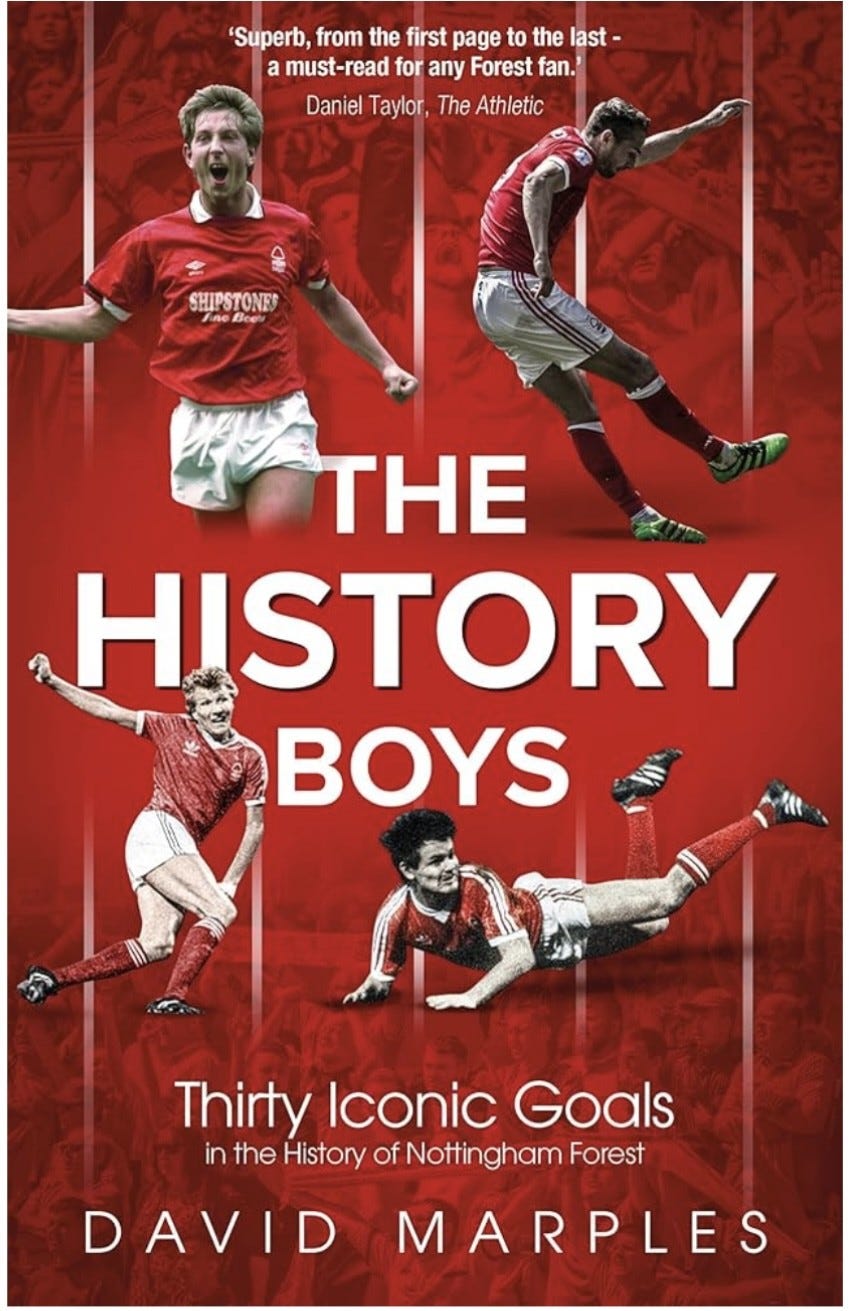








Share this post